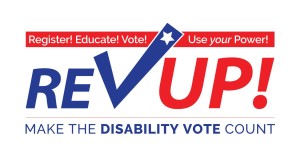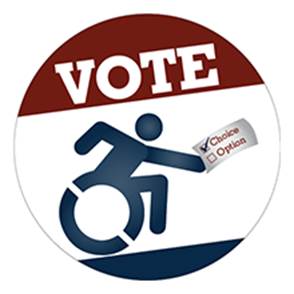An Update from the NCIL ADA Civil Rights Subcommittee
There are now three ADA Notification bills introduced in the 114th Congress. The latest was introduced on Monday, March 7, 2016 by Rep. Jerry McNerney (D-CA). What is different this session is we are seeing bills that have members of both parties signing on.
As we approach the 26th anniversary of the Americans with Disabilities Act, few of the members of Congress that were there at that time of its signing remain. This creates a huge challenge as many who were there at the time understood the ADA and the intent of the law. That makes it all that much more important for us to form a strong opposition to these attacks and make this a priority as we head to the Hill this summer during the NCIL conference and when we meet with legislators when they are home in their district offices.
NCIL, with the National Disability Rights Network (NDRN), the American Association of People with Disabilities (AAPD), the Association of Programs for Rural Independent Living (APRIL), Paralyzed Veterans of America (PVA) and other partners, will be meeting to discuss strategy early this month in Washington. In the meantime, the ADA Civil Rights Subcommittee is working on producing a position paper of our own, which we hope to be sharing soon to bring our membership up to speed as we advocate against unnecessary change.
These bills are not expected to move during this session, which gives us time to create a plan, but we all know how things work in DC and we need to develop our plans sooner than later. The three ADA Notification bills introduced in the 114th Congress as of mid-April are outlined below. [Read more…]
 The REV UP Campaign is coordinating a National Disability Voter Registration Week to increase the political power of people with disabilities while also engaging candidates and the media to recognize the disability community.
The REV UP Campaign is coordinating a National Disability Voter Registration Week to increase the political power of people with disabilities while also engaging candidates and the media to recognize the disability community. Have you ever had any problems trying to vote? That includes access to an accessible parking place or having a private ballot. The Election Assistance Commission (EAC) will be holding a public hearing on voting accessibility on April 27th. If you have had a negative experience while casting your ballot, they need to hear your story. You have the opportunity to inform the EAC about the difficulties you encountered.
Have you ever had any problems trying to vote? That includes access to an accessible parking place or having a private ballot. The Election Assistance Commission (EAC) will be holding a public hearing on voting accessibility on April 27th. If you have had a negative experience while casting your ballot, they need to hear your story. You have the opportunity to inform the EAC about the difficulties you encountered.
